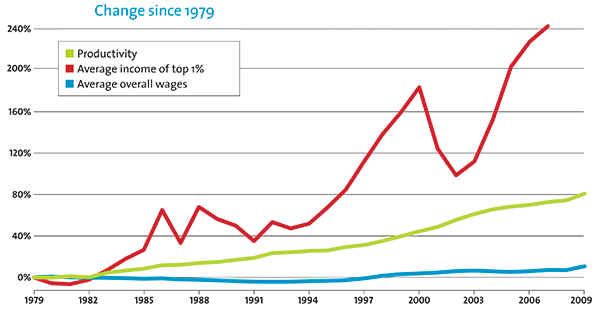I think this Hacker News back and forth (in response to new that the NSA will be cutting sysadmin staff by 90% to limit data access) cuts right to the heart of the matter.
zaroth:
But who will manage the systems that are managing the systems? I’m sure this will work out brilliantly for them when systems crash, or hackers start exfiltrating their data, and there’s no one left to analyze the logs and discover and fix the holes.
The problem at the NSA isn’t that there are too many sysadmins, although apparently that plays well with tech illiterate politicians. The problem is too many morally unconscionable programs which lead to a growing revulsion in the ranks.
Mr. Alexander defends his agency’s conduct and claims the press is distorting the facts. “No one has willfully or knowingly disobeyed the law or tried to invade your civil liberties or privacies,” he said. “There were no mistakes like that at all.” Except we know that even FISA says that’s not true, in a report so damning apparently even elected members of congress can’t read it.
I have news for you Keith, blanket collection of the “meta-data” of every call on Verizon’s network is ex vi termini, invasion of privacy and civil liberty. DEA’s SOD (Special Operations Division) handing off your clandestine intercepts to civilian law enforcement is just the latest, but not the last, sickening revelation. The leaks won’t stop until you stop, and I hope your hubris continues to blind you to how close the political tides are to turning against you. It seems to me that your ‘ends justify the means’ mentality conflicts with your sworn oath to uphold the Constitution, and I can only hope history will look back on this whole endeavor as a dark stain in American history, and view you like a McCarthy of our time. Machiavelli would be proud of you, sir.
rhizome:
The problem is too many morally unconscionable programs which lead to a growing revulsion in the ranks.
Au contraire, it’s extremely morally conscionable to people who see law enforcement as a noble profession empowered to rid the nation (and beyond) of people they see as the scum of the earth. These programs are run by people who, I can guarantee you, do not wake up in the morning wondering what morals and ethics they can ignore that day.
However.
“No one has willfully or knowingly disobeyed the law or tried to invade your civil liberties or privacies,” he said.
And he’s right. And that’s the problem: these things are likely not against the law. The law has both been perverted inch by inch and the agencies have been allowed to operate under looser legal interpretations than you and I receive for parking tickets. This means that to the degree that laws exist that permit their behavior (PATRIOT Act, FISAA), those who would constrain them to even the loose boundaries do not (and by all accounts refuse to) do so. This goes for the FISC as much as Dianne Feinstein and Eric Holder. This means they can say it’s legal for them to do pretty much whatever they want. So now what?
I wish I could agree with the zaroth and the optimists – the romantic view that as they squeeze tighter, as they transgress, actors of conscience will react or that as Assange posits, that authoritarian organizations will become less effective as the secrecy cost increases (PDF link to Assange’s 2006 essay State and Terrorist Conspiracies), however sadly I feel that this reduction in numbers will have quite the opposite effect.
While it’s easy (and satisfying) to decry the opposition as evil from my experience, the idea that no one (well most) people are not the villains of their own story seems to reflect reality much better (see also guardian organizations in particular are predisposed feel paternalistic. This is only magnified by a culture of hidden, hoarded knowledge, secrecy and elitism (“if you only knew what I knew”). Depending on your location on the libertarian/authoritarian political compass, your skin may be crawling a bit reading this description, but certainly those involved in this total surveillance view themselves as professional and honorable – their duty is to serve and protect those that (by design) don’t know any better.
However, there of course must be those within the organization that will have qualms and doubts. After all, history has shown again and again the inevitable progression of unchecked state power against its citizenry, especially when an organization can act in secrecy and with impunity. And of course there are those that, having been brought up with the belief in liberal democracy (you know, the Constitution, the Bill of Rights, the Federalist Papers) would have a very hard time indeed justifying secrecy and actions that would fall under what many would consider the very definition of tyranny. And of course, some of those individuals must also be concerned about what it means to society to have total surveillance, archived forever, and searchable instantly. This combination of the panopticon and the memex has never existed before and its existence (and now the public knowledge that it is controlled by a state actor w/ no meaningful oversight) and I suspect its impact and consequences has yet to be fully digested by society at large…
All this is a long way to say that there surely are those working at the NSA that have doubts – but as this continues to polarize, the ranks will only further close. Those that have the strongest doubts will leave or be forced out, but the Death Star is already fully operational, and there will be more than enough authoritarians, opportunistic, power-hungry, and just plain sociopathic boots to fill the ranks. And as those that would resist the trends towards aggregating more power and authority leave, so will the last remaining internal checks and balances (the external ones having disappeared long ago), leaving the organization more focused, in fact accelerating the slide towards… well, something that will no longer be much of a democratic republic in function, if not form.
Without drastic changes (full transparency, full oversight), this logic feels inescapable, inevitable. The truism about power and corruption seems apropos here.
That’s not to say that the issues of digital privacy and surveillance wouldn’t otherwise be a problem, that cat’s certainly out of the bag, but there’s a clear difference between the commerce vs the state (that centers on the monopoly on violence).
It’s also not to say that the society automatically becomes some sort of Grim Meathook (well, unless you’re poor in which case it already is, or if you decide to stand in the way of the Harkonnen fist). After all, in this new society, you capacity for autonomy will depend primarily on how innocuous/complicit you are within the system (also, being rich never hurts) – this, perhaps alarmingly, is not so different from how it’s always been.
OK, this is much longer than I was planning on, and has turned out to be a bit of a ramble that certainly lays out a lot of rope at least as far as my thoughts on political theory goes. I wish, that after quite a lot of thinking and processing, that I had some better conclusions, but … I don’t. Oh, here’s a catchy one:
Welcome to the future. Enjoy your stay.


